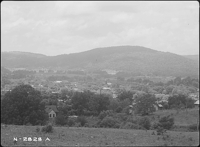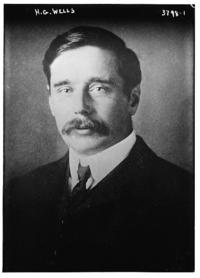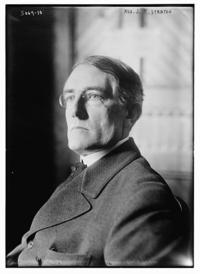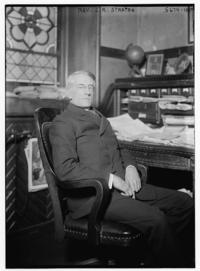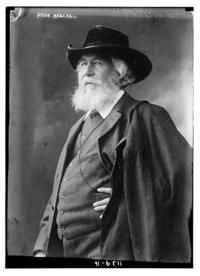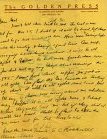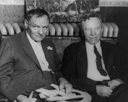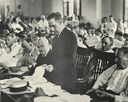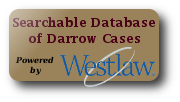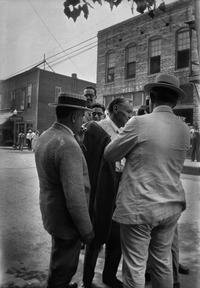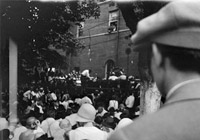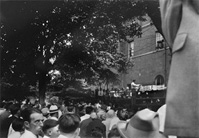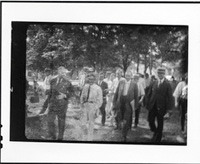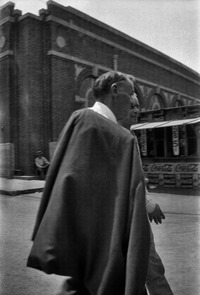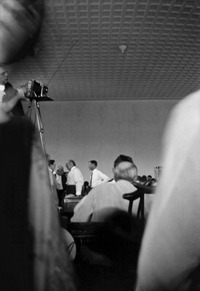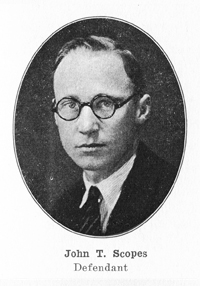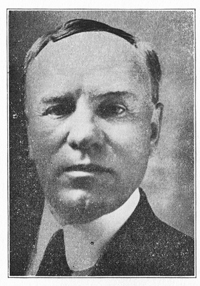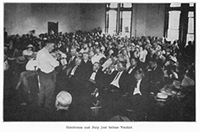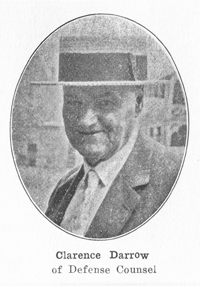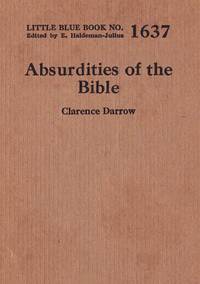The Scopes Trial (1925)

"I am simply trying to protect the word of God against the greatest atheist or agnostic in the United States. (Prolonged applause.) I want the papers to know I am not afraid to get on the stand in front of him and let him do his worst. I want the world to know." (Prolonged applause.) – William Jennings Bryan on the witness stand on day seven of the Scopes Trial, July 20, 1925.
"Mr. Bryan: Your honor, I think I can shorten this testimony. The only purpose Mr. Darrow has is to slur at the Bible, but I will answer his question. I will answer it all at once, and I have no objection in the world, I want the world to know that this man, who does not believe in God, is trying to use a court in Tennessee...
Mr. Darrow: I object to that.
Mr. Bryan: ...to slur at it, and while it will require time, I am willing to take it.
Mr. Darrow: I object to your statement. I am examining* you on your fool ideas
that no intelligent Christian on earth believes."
– William Jennings Bryan being cross-examined by Clarence Darrow, at the end of day seven, of the Scopes Trial, July 20, 1925. *Editor's note: a contemporary newspaper account, The Oregonian, 7/21/1925, p. 4, reads "examining" for this exchange, which we preferred. The official trial account reads "exempting," which may be an error. With thanks to Professor Randy Moore for bringing our attention to this correction.
Trial Transcripts
Day One
Day One: Transcript of Scopes Trial, Friday July 10, 1925.Court Opened with Prayer (page 3) | Case Is Called (page 3) | Visiting Counsel Introduced (page 4) | Judge's Charge to Grand Jury (page 4) | Raulston Reads First Chapter of Genesis (page 5) | New Indictment Returned (page 7) | Darrow Brings up Question about Scientists (page 7) | State Outlines Its Theories (page 8) | Selection of the Jury (page 10).
Day Two
Day Two: Transcript of Scopes Trial, Monday July 13, 1925.Defense Motion to Quash Indictment (page 47) | Judge Retires Jury (page 53) | Hays Argues for Motion (page 55) | Stewart Answers for State (page 61) | Darrow's Arraignment of the Act (page 74).
Days Three & Four
Days Three & Four: Transcript of Scopes Trial, Tuesday July 14 & Wednesday July 15, 1925.Third Day, Tuesday, July 14, 1925
Darrow Objects to Prayer (page 89) |
Unitarians', Jews' and Congregationalists' Petition on Prayer (page 92) |
Court Tells of News Leak-Withholds Decision on Motion to Quash (page 92).
Fourth Day, Wednesday, July 15, 1925
More Argument over Prayer in Court (page 95) |
Press Committee Investigates News Leak (page 97) |
Judge Overrules Motion to Quash (page 100) |
Defense Pleads Not Guilty and States Case (page 112) |
Testimony of State's Witnesses (page 119) |
Testimony of Dr. Metcalf for Defense (page 133).
Day Five
Day Five: Transcript of Scopes Trial, Thursday July 16, 1925.Battle over Admission of Scientific Testimony (page 144) | Bryan's Son Speaks for State (page 150) | Sue Hicks for State (page 160) | Hays for Defense (page 153) | Ben McKenzie, "We have done crossed the Rubicon" (page 165) | Mr. Bryan on Exclusion of Evidence (page 170) | Malone's Fiery Speech in Reply to Bryan (page 183) | Stewart Closes Argument on Admission of Expert Testimony (page 190).
Days Six & Seven
Days Six & Seven: Transcript of Scopes Trial, Friday July 17 & Monday July 20, 1925.Sixth Day, Friday, July 17, 1925
Judge's Decision Excluding Expert's Testimony (page 201) |
Defense Excepts (page 203) |
Further Argument on Court's Ruling (page 203) |
Colloquy Which Leads to Darrow's Citation for Contempt (page 206).
Seventh Day, Monday, July 20, 1925
Darrow Cited for Contempt (page 211) |
Governor's Message (page 213) |
New Text Books Offered by Defense (page 214).
STATEMENTS BY DEFENSE
Darrow Apologizes-Forgiven (page 225) | Rabbi Rosenwasser (page 227 | Rev. W. C. Whitaker (page 228) | Dr. H. E. Murkett (page 229) | Would Call Burbank (page 230).NOTED SCIENTISTS' STATEMENTS
Chas. Hubbard Judd (page 231) | Jacob L. Lipman (page 232) | Dr. Fay Cooper Cole (page 234) | Wilber A. Nelson (page 238) | Kirtley F. Mather (page 241) | Maynard M. Metcalf (page 251) | Winterton C. Curtis (page 254) | Prof. Horatio H. Newman (page 263) | The Sign, "Read Your Bible," Gives Offense (page 280) | Other Bibles Introduced (page 283) | Bryan on Witness Stand (page 284).Day Eight
Day Eight: Transcript of Scopes Trial, Tuesday July 21, 1925.Bryan's Testimony Stricken Out (page 305) | Judge Charges Jury (page 309) | Jury's Decision (page 312) | Scopes Receives Sentence (page 313) | Talk Fest by Lawyers and Visitors (page 313) | Court's Farewell Message (page 317) | Supplement: Bryan's Last Speech - Published Posthumously (page 321).
Preliminary Motion to Strike Out the So-Called Bill of Exceptions (1925).
Prosecution's motion to strike the Scopes defense's bill of exceptions from the transcript of the record. The prosecution was successful because Scopes' local counsel, John R. Neal, failed to file the bill within the required time.
Statement of Wilbur A. Nelson, State Geologist of Tennessee.Wilbur Nelson was one of eight scientific experts for the defense. Only Dr. Maynard Metcalf was allowed to testify and the other experts were allowed to submit written statements for the record on appeal.
Winterton C. Curtis, Zoologist, University of Missouri.Dr. Curtis was one of eight scientific experts for the defense. Only Dr. Maynard Metcalf was allowed to testify and the other experts were allowed to submit written statements for the record on appeal.
Statement of Horatio Hackett Newman, Zoologist, University of Chicago.Dr. Newman was one of eight scientific experts for the defense. Only Dr. Maynard Metcalf was allowed to testify and the other experts were allowed to submit written statements for the record on appeal.
Statement of Fay Cooper Cole, Anthropologist, University of Chicago.Dr. Cole was one of eight scientific experts for the defense. Only Dr. Maynard Metcalf was allowed to testify and the other experts were allowed to submit written statements for the record on appeal.
Statement of Kirtley F. Mather, Chairman of the Department of Geology of Harvard University.Kirtley Mather was one of eight scientific experts for the defense. Only Dr. Maynard Metcalf was allowed to testify and the other experts were allowed to submit written statements for the record on appeal..
Reply Brief and Argument for the State of Tennessee in Scopes v. Tennessee.Filed by Frank M. Thompson, Attorney-General, Ed. T. Seay and K.T. McConnico, Special Counsel for the State of Tennessee.
Genesis 1, 2 in The Holy Bible containing the Old and New Testaments: Holman Pronouncing Edition 7-8 (A.J. Holman 1902).Because it was alleged that Scopes had taught a doctrine denying the story of the Divine creation of man, Judge Raulston read the first chapter of Genesis to the jury. Later Holman's Pronouncing Edition version of the Bible was entered into evidence during the trial. Just before resting the state's case, Prosecutor Stewart asked that the first two chapters of Genesis be read into the record.
Statement of Facts, Assignment of Errors, Brief and Argument in Behalf of John Thomas Scopes, Plaintiff in Error.Brief for Scopes' appeal of his conviction for violating Tennessee's Anti-Evolution Act. Unfortunately, Scopes' local counsel, John R. Neal, failed to file a bill of exceptions within 30 days after the trial and the trial court struck the bill of exceptions from the record. Thus the defense could only ask the Tennessee Supreme Court to take judicial notice of much of the material in this brief since it could not be part of the appeal. Nevertheless, the brief is an important source of information about the constitutional and religious issues generated by the trial. Handwriting on top is very likely by Arthur Garfield Hays and says: Dear Sam: Many corrections have been made in this. The Last Proof. AGH
Handwritten draft of Brief by Scopes Defense (Part I, 1926).Handwritten draft with typed translation. The author of this brief is unknown but the two main brief writers for the Scopes appeal were Arthur Garfield Hays and Robert S. Keebler, a Memphis attorney. Words or letters that are not clear are translated in bold. Words or letters that are undecipherable are marked with "?" marks.
Handwritten draft of Brief by Scopes Defense (Part II, 1926).Words or letters that are undecipherable are marked with "?" marks.
Witnesses for the Defense in the Scopes Trial 1925, 3 pages.A list of the witnesses for the defense in the State of Tennessee v. John Thomas Scopes trial on the theory of evolution being taught in schools. Witnesses are organized by their scientific disciplines to support the defense's stance that evolution should be taught in public schools, even though some religions disagree with the theory. Two pages, front and back of first page, only one side of second page.
The Digital Public Library of America. Witnesses for the Defense in the Scopes Trial 1925, 3 pages | SIRISRagio, a barber, was convicted for violating a Tennessee statute making it a "misdemeanor for any one engaged in the business of a barber . . . to keep open his bath-rooms on Sunday, but not prohibiting other persons from doing so." On appeal, the Supreme Court of Tennessee held that the statute was "class legislation" and thus violated Article XI, Section 8, of the State Constitution. The Scopes defense relied on this case and Darrow made humorous references to it during the trial.
Leeper v. State, 103 Tenn. 500, 53 S.W. 962 (1899).The Supreme Court of Tennessee affirmed Edward Leeper's conviction for violating Tennessee's "Uniform Text-Book Act." The state textbook commission had adopted and prescribed for use in the public schools Frye's Introductory Geography as a uniform textbook but Leeper "willfully and unlawfully taught Butler's and the New Eclectic Elementary Geography" which according to the indictment was "against the peace and dignity of the state." Leeper was sentenced to pay a fine of $10 and costs. This case was cited during the Scopes trial. It was also cited in Scopes' appeal - Scopes v. State, 289 S.W. 363, 154 Tenn. 105 (1927).
Meyer v. Nebraska, 262 U.S. 390 (1923).Nebraska, along with other states, prohibited the teaching of modern foreign languages to grade school children. Meyer, who taught German in a Lutheran school, was convicted under this law. The Court held the Nebraska law was unconstitutional. The statute violated the liberty protected by due process of the Fourteenth Amendment. The legislative purpose of the law was to promote assimilation and civic development but these purposes were not adequate to justify interfering with Meyer's liberty to teach or the liberty of parents to employ him as a teacher. This case was cited during the trial.
Letter written to Defense suggesting Butler Act violates the Tennessee Constitution (1925).Letter in Darrow papers in which the writer suggests that the Butler Act violates the section of the Tennessee Constitution that places a duty on the General Assembly "to cherish literature and science." The Scopes defense did raise this argument in the trial and in its brief to the Supreme Court of Tennessee.
Pierce v. Society of the Sisters, 268 U.S. 510, 45 S.Ct. 571 (1925).This case was decided during the Scopes controversy and Scopes' defense team cited it during the trial and subsequent appeals. The plaintiffs challenged the Oregon Compulsory Education Act adopted November 7, 1922 and to become effective on September 1, 1926, requiring every parent, guardian, or other person having control or charge or custody of a child between 8 and 16 years old to send him "to a public school for the period of time a public school shall be held during the current year" in the district where the child resided. Failure so to do so would be a misdemeanor. The Court held the Act unconstitutional as a violation of the Fourteenth Amendment. The Court stated, "[W]e think it entirely plain that the Act of 1922 unreasonably interferes with the liberty of parents and guardians to direct the upbringing and education of children under their control."
Scopes v. State, 152 Tenn. 424 (1925).The Supreme Court of Tennessee sustained the State of Tennessee's motion to strike the bill of exceptions from the record because Scopes' defense had filed it too late.
Scopes v. State, 154 Tenn. 105 (1927).The Supreme Court of Tennessee reversed Scopes' conviction: "This record discloses that the jury found the defendant below guilty, but did not assess the fine. The trial judge himself undertook to impose the minimum fine of $100 authorized by the statute. This was error. Under . . . the Constitution of Tennessee, a fine in excess of $50 must be assessed by a jury. The statute before us does not permit the imposition of a smaller fine than $100. Since a jury alone can impose the penalty this act requires, and as a matter of course no different penalty can be inflicted, the trial judge exceeded his jurisdiction in levying this fine, and we are without power to correct his error. The judgment must accordingly be reversed." The court concluded its opinion with: "The court is informed that the plaintiff in error is no longer in the service of the state. We see nothing to be gained by prolonging the life of this bizarre case. On the contrary, we think the peace and dignity of the state, which all criminal prosecutions are brought to redress, will be the better conserved by the entry of a nolle prosequi herein. Such a course is suggested to the Attorney General."
Edwards v. Aguillard, 482 U.S. 578, 107 S.Ct. 2573 (1987).The Court held that Louisiana's "Balanced Treatment for Creation-Science and Evolution-Science in Public School Instruction" Act (La.Rev.Stat.Ann. Secs. 17:286.1-17:286.7) was facially invalid. The statute violated the Establishment Clause of the First Amendment because it lacked a clear secular purpose.
Doe v. Porter, 188 F. Supp. 2d. 904 (2002).For several years the Rhea County Board of Education in Dayton Tennessee allowed staff and students from Bryan College to conduct a program known as the Bible Education Ministry ("BEM") in the Rhea county public elementary schools. Plaintiffs filed a lawsuit seeking to enjoin the school board practice of permitting the teaching of the Christian Bible as religious truth in public schools. The trial court held that religious instruction in public school classes constituted an unconstitutional establishment of religion.
Doe v. Porter, 370 F.3d 558 (6th Cir. 2004).The Sixth Circuit affirmed the trial court's holding that religious instruction in public school classes constituted an unconstitutional establishment of religion.
Enacted as "An Act Concerning Religion," this statute is most often referred to as The Maryland Toleration Act of 1649 or Maryland's Act of Toleration. This act was referred to during the Scopes trial.
The Virginia Act for Establishing Religious Freedom.This act was drafted by Thomas Jefferson in 1779, three years after he wrote the Declaration of Independence, and enacted by the General Assembly of the Commonwealth of Virginia in 1786. The act and Jefferson's views about religious freedom were referred to several times during the Scopes trial.
Kentucky Anti-evolution Bill & Resolution Inviting William Jennings Bryan to Address General Assembly.S. Res. 12 invited William Jennings Bryan and H.B. 191 would prohibit evolution. The anti-evolution bill was defeated in March 1922.
House Concurrent Resolution No. 7 (1923).Florida House of Representatives resolution condemned, but did not ban, the teaching of evolution in public schools. William Jennings Bryan was instrumental in getting the resolution passed in his adoptive state.
1925 Tennessee Anti-Evolution Act.Tennessee Anti-Evolution Act was known as the Butler Act because it was introduced by John Washington Butler (1875 - 1952).
An Act Prohibiting the Teaching of the Evolution Theory (Butler Act) (1925).The Tennessee statute Scopes violated was called the Butler Act because it was proposed by John Washington Butler, a Tennessee farmer and member of the state legislature. Clarence Darrow wrote in his autobiography: "From any point of view, the law was silly and senseless. At the time of its passage, even in the States of Tennessee and Mississippi the schools were teaching that the earth was round instead of flat, and the day and night were due to the revolution of the earth on its axis and not from the sun and the moon going around it . . . . This and many other things, taught in the public schools down there, are flatly contrary to Genesis and, in fact, they refute the Bible account much more clearly than does the doctrine of evolution." Clarence Darrow, The Story of My Life.
An Act to Establish and Maintain a Uniform System of Public Education (1925).This Tennessee law "to establish and maintain a uniform system of Public Education" passed on April 16, 1925, approximately three weeks after passage of the Butler Act. Part of the reason Governor Peay signed the Butler Act into law was to garner legislative support to pass this education law. Among its many provisions it states: "It shall be the duty of the teacher: 4. To read, or cause to be read at the opening of the school everyday, a selection from the Bible and, the same selection shall not be read more than twice, a month."
An Act to Repeal Section 49-1922, Tennessee Code, Prohibiting The Teaching of Evolution.This Tennessee statute repealed the 1925 Butler anti-evolution act at issue in the Scopes trial. It was passed on May 16, 1967 and took effect on September 1, 1967.
This annotated version of the Tennessee Constitution from Shannon's Code was referred to by the prosecution during the Scopes trial. Both the prosecution and defense made numerous references to several sections of the Tennessee Constitution.
Tennessee Governor Peay's Signing Statement (1925).Due to the intense interest, Governor Peay gave his reasons for signing the Butler bill into law.
Senate Journal of the Sixty-Fourth General Assembly of the State of Tennessee.On March 13, 1925 the Tennessee Senate voted for passage of House Bill No. 185, known as the "Butler Act."
1928 Opinion of the Attorney General of Tennessee.The Attorney General of Tennessee provided an opinion on the constitutionality of teaching the Bible in schools under Art. 1, Sec. 3 of the Constitution of Tennessee.
Address of the President at the Dedication of the Bryan Memorial (1934).President Franklin D. Roosevelt made an address dedicating a statue of William Jennings Bryan created by Gutzon Borglum, the sculptor of Mt. Rushmore. The statue originally stood in Washington, D.C. but was moved in 1961 to Salem, Illinois, Bryan's birthplace. The statue is located across from Bryan Memorial Park.
"I won't bother to discuss just what religion is, but I think a fair definition of religion could take account of two things, at least, immortality and God, and that both of them are based on some book, so practically all of it is a book."
The Prince of Peace by William Jennings Bryan (1931).Bryan gave this lecture at many religious meetings and Chautauquas beginning in 1904.
What is Religion? by Colonel Robert G. Ingersoll (1899).Robert G. Ingersoll (1833-1899) was a prominent agnostic, lawyer and public speaker who greatly influenced Clarence Darrow. This is Ingersoll's last public address.
The Bible and Its Enemies by William Jennings Bryan (1921).An Address delivered at the Moody Bible Institute of Chicago.
The Menace of Darwinism by William Jennings Bryan (1931).Chapter IV of Bryan's book, In His Image, is republished in a separate booklet which contains nine religious lectures Bryan gave in October 1921 at the Union Theological Seminary in Richmond, Virginia.
Darrow-Case Debate: Has Religion Ceased to Function? (1921).Darrow argued in the affirmative against Professor Shirley Jackson Case who taught in the Divinity School of the University of Chicago.
Evolution and Mr. Bryan by Harry Emerson Fosdick (1922).Fosdick, a noted theologian, was asked to reply by the New York Times to William Jennings Bryan's statement "God and Evolution."
The Evolution Issue by T.T. Martin.This address was delivered in Los Angeles, California on October 28, 1923.
Evolution or Christ? Christ or Hell? by T.T. Martin (1923).Address delivered in Los Angeles, California, November 11, 1923.
Should Evolution Be Taught in Tax Supported Schools? (1925)."The Arguments Against Delivered by W.B. Riley in the McCabe-Riley Debates." W.B. Riley was an influential religious leader, anti-evolutionist and pastor of the First Baptist Church in Minneapolis for 45 years. William Jennings Bryan once called Riley "the greatest Christian statesman in the American pulpit."
Absurdities of the Bible (1931).Darrow criticizes a literal interpretation of the Bible in this text. Published several years after the Scopes trial, the document includes other short articles such as "Rev. Ben M. Bogard Fails to Halt Devil Darrow."
This piece was published in Science magazine in 1922.
The Vote on the Evolution Bill in the Kentucky State Legislature (1922).A description of the one vote defeat of a Kentucky anti-evolution bill is published in Science.
The Teaching of Evolution (1922).This article in Science magazine discusses teaching evolution and makes several references to William Jennings Bryan.
Kentucky and the Theory of Evolution (1922).This report on anti-evolution legislation in Kentucky was published in Science, vol. LV, No. 1416.
"William Jennings Bryan as a Social Force" by Malcolm M. Willey and Stuart A. Rice (1923).This article appeared in The Journal of Social Forces and presents an analysis of Mr. Bryan's impact on the views of Dartmouth students towards evolution. Based on student surveys, the authors demonstrate that students were less certain about the doctrine of evolution after listening to Mr. Bryan.
"A Very Liberal Church" (1925).This brief reference to the "Liberal Church" in Denver that elected Clarence Darrow to honorary church membership because of his role in the Scopes trial was published in Liberty: A Magazine of Religious Freedom.
Editorial in The Crisis (1925).An editorial in The Crisis, the official magazine of the National Association for the Advancement of Colored People (NAACP), discussed the Scopes trial.
William Jennings Bryan responds to an invitation from the New York Times to present objections to the theory of evolution as applied to man.
Answer to Bryan on Evolution.This anonymous defense of evolution was written in response to an attack on evolution by William Jennings Bryan published in the New York Herald on March 19, 1922.
If Monkeys Could Speak (1925).This editorial about the Scopes trial appeared in the Chicago Defender, a leading black newspaper. The writer states that because the theory of evolution means all people came from a common origin, anti-evolutionists really fear that evolution means the races are equal.
Oregon School Law Declared Invalid by Supreme Court (1925).This newspaper clipping from the Clarence Darrow papers is about the "Oregon School" law case. The case, Pierce v. Society of the Sisters, was decided during the Scopes controversy and the Scopes defense team cited it during the trial and in subsequent appeals.
Edward J. Larson in his book Summer for the Gods: The Scopes Trial and America's Continuing Debate Over Science and Religion (2006) explains that John Draper and Andrew Dickson White wrote very popular but biased histories of the conflict between science and religion. Larson states that neither Draper or White reported that the conflict had grown less antagonistic and most prominent scientists were devout Christians. Draper and White's works were influential in portraying a heated conflict between science and religion. Larson also relates that this influenced Clarence Darrow's father and his son who both read Draper's work. Clarence Darrow also quoted Draper in speeches.
Evidence as to Man's Place in Nature by Thomas H. Huxley (1886).Thomas Huxley was one of the most influential proponents of Darwin's theory of evolution. Originally published in 1863, this is Huxley's most famous work.
Victorious Democracy: Embracing Life and Patriotic Services of Hon. William J. Bryan (1900).This book promoting William Jennings Bryan for President was written for the 1900 election. It also includes information about Bryan's Vice Presidential running mate, Adlai E. Stevenson (1835-1914).
An Outline of the Theory of Organic Evolution by Maynard Mayo Metcalf (1904).Dr. Metcalf was the only defense scientific expert allowed to testify on the stand during the Scopes trial. At the time of the trial, Dr. Metcalf was a zoologist from the Johns Hopkins University.
Illogical Geology: The Weakest Point in the Evolution Theory by George McCready.Price had to borrow money to self-publish Illogical Geology, his second book. He borrowed the name from Herbert Spencer. Price updated his 1906 book when he published The Fundamentals of Geology in 1913.
The Finality of the Higher Criticism, or The Theory of Evolution and False Theology by William Bell Riley (1909).William Bell Riley began his ministry as pastor of the First Baptist Church in Minneapolis, Minnesota and served there for 45 years. Riley has been identified as the first Fundamentalist leader to link "higher criticism" with the theory of evolution. Higher criticism is an inquiry into the genuineness of Bible teaching. Lower criticism, also called textual criticism, tries to determine what a text originally said before it was altered by mistake or intentionally. Lower criticism evaluates which Bible texts are most accurate. Higher criticism views the Bible as a text created by human beings with various motives at different periods of time. Lower criticism views the Bible as the inerrant word of God. In this book, Riley argues that the liberal theology of higher criticism is a result of accepting the theory of evolution.
A History of the Warfare of Science with Theology in Christendom by Andrew Dickson White ) (Volume I) (1910).Andrew Dickson White (November 7, 1832 - November 4, 1918) was a co-founder of Cornell University as well as a U.S. diplomat, author, and educator. White and John William Draper helped maintain the perception of hostility between science and religion.
A History of the Warfare of Science with Theology in Christendom by Andrew Dickson White (Volume II) (1910).This is the second volume of Andrew Dickson White's work.
A Civic Biology: Presented in Problems by George William Hunter (1914).This is the version of Hunter's Civic Biology that Scopes allegedly used to teach evolution. This version of the textbook was entered into evidence. The section on evolution starts on pages 192-196. References to Charles Darwin are on pages 253 and 404. Hunter deleted most of the information about evolution from his textbook when it was revised in 1926 following the Scopes trial.
A Civic Biology: Presented in Problems, by George William Hunter (1914).This document consists of pages covering evolution from the biology textbook that Scopes used to violate Tennessee's anti-evolution statute.
The Belief in God and Immortality, by James H. Leuba (1916).Leuba demonstrated that a college education greatly reduced the religious beliefs that students held before attending college. Leuba also noted that very few scientists believed in God. William Jennings Bryan was greatly influenced by this book because it strengthened his belief that teaching the theory of evolution in schools undermined the religious faith of students. This document includes excerpts from Leuba's book including the Introduction, table of contents and "PART II Statistical Study of the Belief in a Personal God and in Personal Immortality in the United States.
The Price of a Soul by William Jennings Bryan (1916).Bryan was a prolific lecturer on religion. This message was first given as an address at a Northwestern Law School banquet and a commencement speech at the Peirce School in Philadelphia. Bryan later extended it into a lecture.
Billy Sunday: His Tabernacles and Sawdust Trails (1917).A biography of Billy Sunday, the famous "baseball evangelist." Sunday, who gave up a professional baseball career with the Chicago White Stockings to preach full-time, went to Tennessee to energize fundamentalists against evolution.
Headquarters Nights: A Record of Conversations and Experiences at the Headquarters of the German Army in France and Belgium by Vernon Lyman Kellogg (1917).William Jennings Bryan was horrified by the mass slaughter of World War I. He came to believe that German militarism that led to the war was based on the "survival of the fittest" doctrine from the theory of evolution. Bryan came to this conclusion largely as the result of reading Kellogg's book. Former president Theodore Roosevelt wrote this Foreword to the book: "One of the most graphic pictures of the German attitude, the attitude which has rendered this war inevitable, is contained in Vernon Kellogg's Headquarters Nights. It is a convincing, and an evidently truthful, exposition of the shocking, the unspeakably dreadful moral and intellectual perversion of character which makes Germany at present a menace to the whole civilized world. The man who reads Kellogg's sketch and yet fails to see why we are at war, and why we must accept no peace save that of overwhelming victory, is neither a good American nor a true lover of mankind.
Daniel vs. Darwinism by William B. Riley, Pastor, First Baptist Church, Minneapolis, Minn. (1918).1. Daniel vs. Heathenism (page 5), 2. Daniel vs. Darwinism (page 23),3. Daniel vs. Sensualism (page 42), 4. Daniel vs. Bestialism (page 61), 5. This War and the Prophetic Word (page 85).
The Science of Power by Benjamin Kidd (1919).In this book Benjamin Kidd tried to show a link between German military aggression and Darwin's theory and its impact on the German philosopher Friedrich Nietzsche. Kidd's book was one of the more important influences that led William Jennings Bryan to believe evolution was dangerous. Bryan quoted Kidd's book in his undelivered address that he had prepared for the trial but was prevented from giving. The address was published after Bryan's death.
Evolution-- a Menace, by J.W. Porter (1922).Porter helped lead the fight to ban the teaching of evolution in Kentucky schools. The law was narrowly defeated in 1922. In this work, Porter quoted from and criticized several science text books including Hunter's Civic Biology, the text book John Scopes would use in 1925 to violate Tennessee's anti-evolution law.
God's Two Books: Or Plain Facts about Evolution, Geology, and the Bible by George McCready Price (1922).William Jennings Bryan used Price's work to refute the theory of evolution. Bryan asked Price to appear as an expert witness for the prosecution but Price was lecturing in England and could not attend the trial. Price's work would gain a considerable following among fundamentalists some years after the Scopes trial. Price would eventually become one of the two most popular scientific authorities to fundamentalists.
God or Gorilla: How the Monkey Theory of Evolution Exposes Its Own Methods, Refutes Its Own Principles, Denies Its Own Inferences, Disproves Its Own Case by Alfred Watterson McCann (1922).McCann, a Catholic journalist and nutritionist, criticizes evidence of missing links purporting to show man descended from apes. McCann turned down William Jennings Bryan's request to testify during the Scopes trial. McCann did not like the Butler Act because he did not believe in censorship of ideas.
In His Image by William Jennings Bryan (1922).This is a collection of lectures given by Bryan. In the preface he states, "In these lectures I have had in mind two thoughts, first, the confirming of the faith of men and women, especially the young, in a Creator, all-powerful, all-wise, and all-loving, in a Bible, as the very Word of a Living God and in Christ as Son of God and Savior of the world; second, the applying of the principles of our religion to every problem in life."
Hell and the High Schools by T.T. Martin (1923).T.T. (Thomas Theodore) Martin was an important leader in the anti-evolution movement. Hell and the High Schools is a vehement attack on the teaching of the theory of evolution in which Martin portrayed evolutionist teachers as the worst evil facing the country. Martin traveled to Dayton during the Scopes trial where he sold copies of Hell and the High Schools in the street near the courthouse. Martin pulled no punches in his condemnation of evolution: "[T]he Germans who poisoned candy and poured it out from aeroplanes that the starving Belgian and French children might eat it and die, were angels compared to the teachers paid by our taxes, who feed our children's minds with the deadly, soul-destroying poison of Evolution. . . . And the father and mother, who will stand by, and not go to the limit to protect their children from the soul destroying poison of Evolution, are equally guilty with the text-book writers and publishers and the Evolution professors in our schools."
Published in The Journal of Religion, this piece describes the important anti-evolution battle in Kentucky just a few years prior to the Tennessee controversy.
Defense Strategy Document (1925).In this two page document from the Clarence Darrow papers the defense analyzes how a federal court could have jurisdiction to hear a challenge to the Butler Act.
Strategy Note on the Possibility of Federal Jurisdiction to Challenge Butler Act (1925).From the Clarence Darrow papers, this brief note discusses the possibility of getting federal jurisdiction to challenge the Butler Act.
Thomas Jefferson Quoted in Letter with Letterhead of Mrs. Samuel J. Rosensohn (1925).This letter is from the Clarence Darrow papers. Samuel J. Rosensohn participated in the Scopes appeal to the Tennessee Supreme Court.
The Tennessee Evolution Case by Robert S. Keebler (1925).Robert S. Keebler's controversial address at the annual meeting of the Tennessee Bar Association on June 26-27, 1925 caused an uproar and was expunged from the record by the president of the Tennessee Bar Association. Keebler was a Memphis attorney who later helped the Scopes defense on appeal.
The Battle Hymn of Tennessee by Mrs. E.P. Blair (1925).This poem, published in the Nashville Tennessean on June 29, 1925, has a maternal theme supporting passage of the Butler Act, Tennessee's anti-evolution law. Many women in Tennessee supported passage of the law. The poem refers to the out-of-town lawyers and scientists for the defense:
"Their forces are clad in garments great,
Of science and law.
With the camouflage cloak of knowledge
To hide their claw."
Proceedings of the Forty-Fourth Annual Session of the Bar Association of Tennessee (1925).This is an excerpt from proceedings that involve the Tennessee anti-evolution act, including a reference to remarks by Robert S. Keebler, a Memphis attorney. Keebler was very vocal in his criticism of the law. The discussion became heated and Keebler's remarks were ruled out of order and expunged from the record by the bar association president who also withdrew an invitation to Clarence Darrow to present his side of the case before the bar association. Keebler later assisted the defense appeal.
The New York Law Review requested that Scopes' attorneys publish an article about the case. (1925). Letter to Lucille B. Milner of the ACLU in regard to West Virginia Case (1925).Letter from the secretary to the Circuit Clerk of Taylor County West Virginia to Lucille B. Milner of the American Civil Liberties Union. The letter includes a copy of an opinion from a case in West Virginia that the plaintiff's counsel in that case believes has relevance to the Scopes case. From the Clarence Darrow Papers.
Letter to Lucille B. Milner of the ACLU About West Virginia Case (1925).This letter was sent to inform the ACLU about a West Virginia case in which a high school teacher was not hired because she was Catholic. The letter was sent by a secretary to the Circuit Clerk of Taylor County, West Virginia. Milner was one of the founders of American Civil Liberties Union and she served as its executive secretary for 25 years. The letter is in the Clarence Darrow papers.
Walter Nelles Letter to Samuel Rosensohn (1925).This letter discusses the Scopes defense. Walter Nelles and Samuel Rosensohn were both lawyers active in the ACLU. They also participated in ACLU meetings during which Clarence Darrow's participation in the Scopes defense was discussed. Rosensohn also signed the "Statement of facts assignment of errors, brief & argument in behalf of John Thomas Scopes, plaintiff-in-error."
Letter from David S. Garland to Samuel J. Rosensohn (1925).Letter from an editor of the New York Law Review (New York University Law Review) to Samuel J. Rosensohn asking if there was interest in publishing an article about the Scopes case. Rosensohn was a New York lawyer with close ties to the ACLU. Rosensohn was originally part of the Scopes defense team but he was replaced by Arthur Garfield Hays as the sole ACLU representative in Dayton, Tennessee. Rosensohn later participated in Scopes' appeal. Letter from the papers of Clarence Darrow.
Telegram from The Nashville Tennessean Newspaper Asking About Counsel's Religious Beliefs (1925).The Nashville Tennessean newspaper sent this telegram to Samuel Rosensohn of the ACLU, who worked with the Scopes defense. The telegram asked about the religious beliefs of the attorneys involved.
Cherish Literature and Science (1926).This clip is part of the Scopes material in the Clarence Darrow papers. The writer refers to the explicit duty of the legislature written in the Tennessee Constitution "to cherish literature and science." The Scopes defense did raise this argument during the trial.
Randy Moore; The Long & Lingering Shadow of the Scopes Trial.Randy Moore; The Long & Lingering Shadow of the Scopes Trial. The American Biology Teacher 1 February 2020; 82 (2): 81–84.
Permalink: doi.org/10.1525/abt.2020.82.2.81Photos - Key Figures
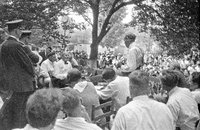
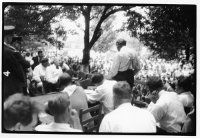
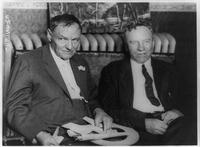
Darrow: "I do not understand why every request of the state and every suggestion of the prosecution should meet with an endless waste of time, and a bare suggestion of anything on our part should be immediately over-ruled."
Court: "I hope you do not mean to reflect upon the court."
Darrow: "Well, your honor has the right to hope."
Court: "I have the right to do something else, perhaps."
Darrow: "All right; all right."
When the trial resumed the following Monday Judge Raulston held Darrow in contempt of court. Later that day Darrow apologized, the judge accepted with a short religious sermon, and all was forgiven. Library of Congress, LC-USZ62-95411.
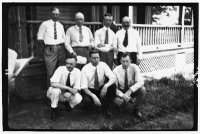
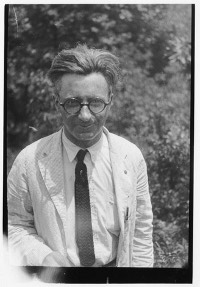
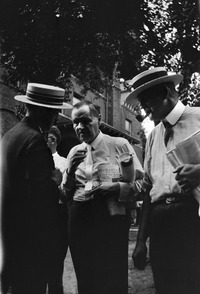
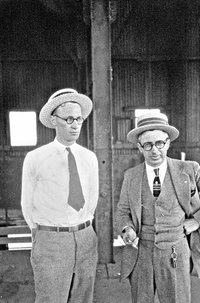
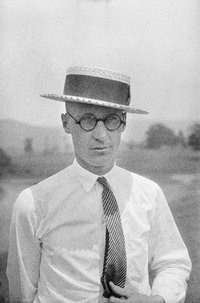
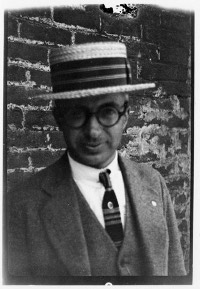
In 1946 Rappleyea became Secretary-Treasurer of the Marsallis Construction Company in New Orleans. In March 1947 Rappleyea and others were arrested in New Orleans for conspiracy to violate the National Firearms Act. According to Time Magazine, "William Marsalis and George Rappleyea had a hole-in-the-wall office in New Orleans, a houseful of guns in Gulfport, Miss., plus two landing ships, four P-38s and four tanks. They insisted that they were interested only in opening up the mahogany wilderness of British Honduras." In March 1948, Rappleyea pleaded guilty in a federal court in Biloxi, Mississippi to conspiracy to ship arms and ammunition to British Honduras. He was sentenced to one year in prison. From the Smithsonian Institution
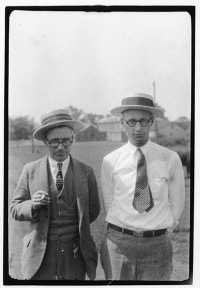
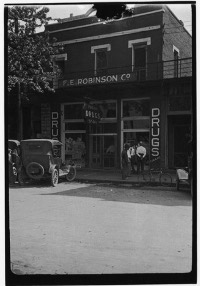
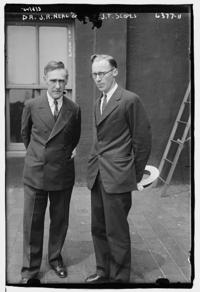
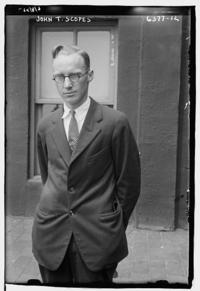
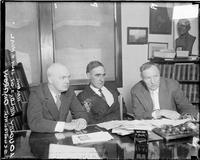
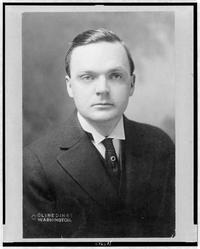
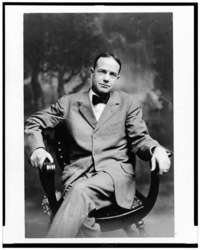

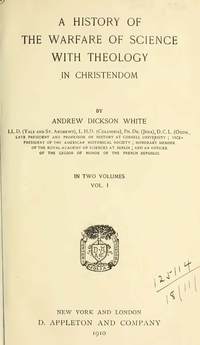
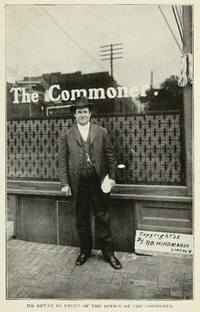
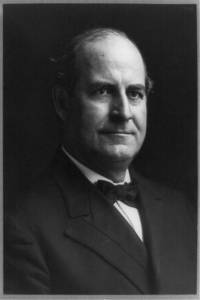
"Mr. Bryan was the logical man to prosecute the case. He had not been inside a courtroom for forty years, but that made no difference, for he did not represent a real case; he represented religion, and in this he was the idol of all Morondom." Clarence Darrow, The Story of My Life. Library of Congress Prints and Photographs Division, LC-USZ62-95709. Bryan Letter to Darrow
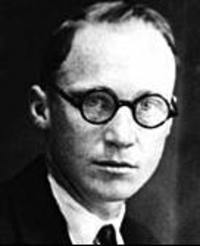
Clarence Darrow, The Story of My Life.
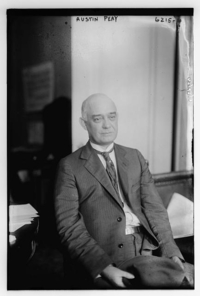
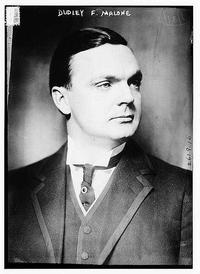
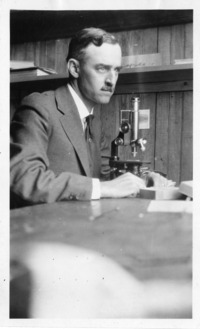
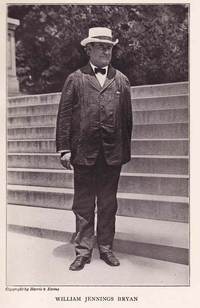
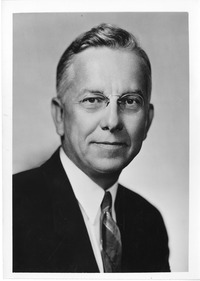
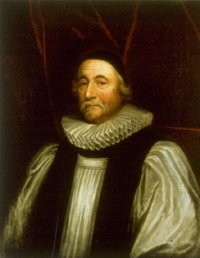
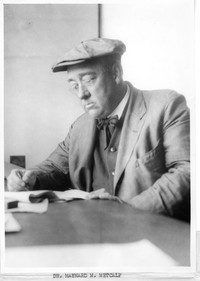
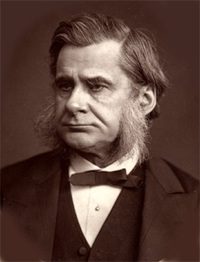
"I finished your book yesterday. . . Since I read Von Baer's Essays nine years ago no work on Natural History Science I have met with has made so great an impression on me & I do most heartily thank you for the great store of new views you have given me ... As for your doctrines I am prepared to go to the Stake if requisite ... I trust you will not allow yourself to be in any way disgusted or annoyed by the considerable abuse & misrepresentation which unless I greatly mistake is in store for you ... And as to the curs which will bark and yelp -- you must recollect that some of your friends at any rate are endowed with an amount of combativeness which (though you have often & justly rebuked it) may stand you in good stead -- I am sharpening up my claws and beak in readiness." Wikipedia:T. H. Huxley
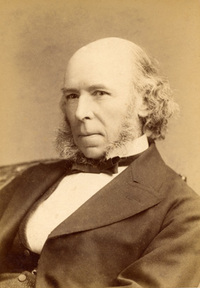
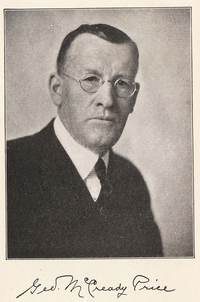
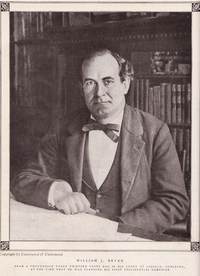
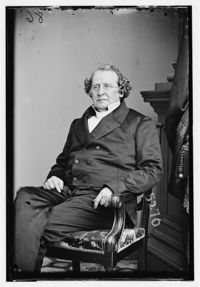
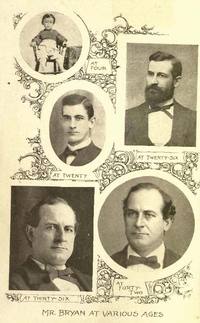
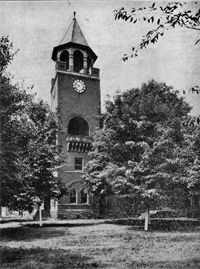
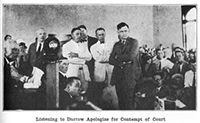
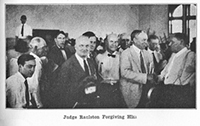
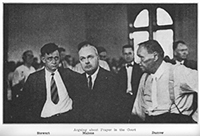
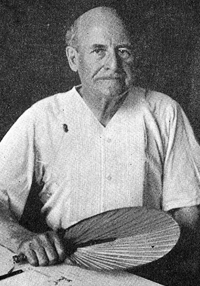
Photos
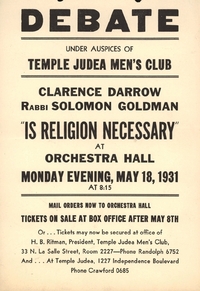
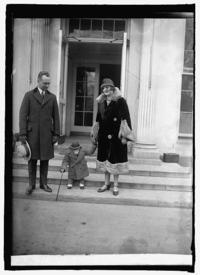
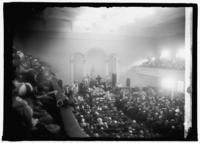
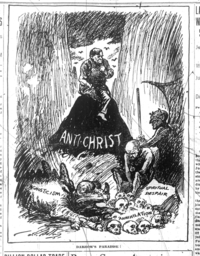
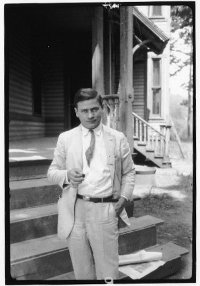
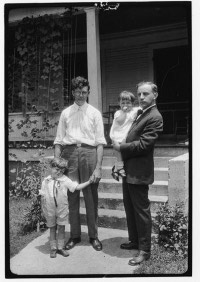
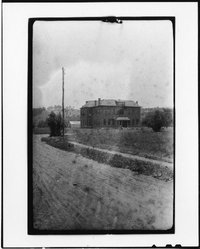
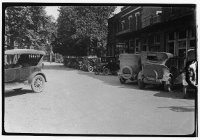
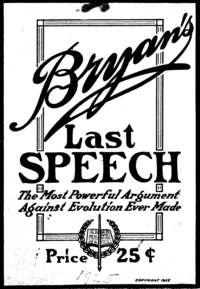
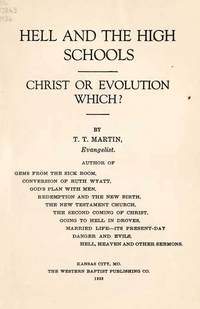
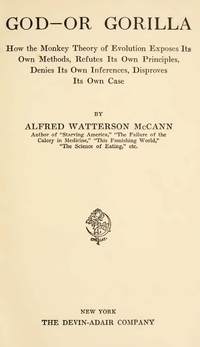
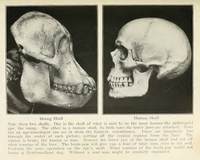
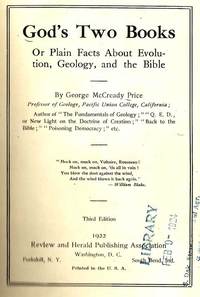
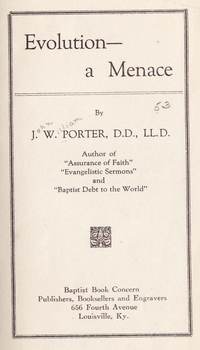
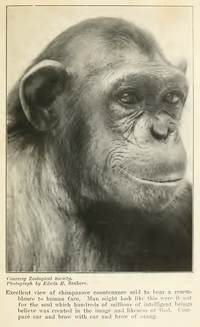
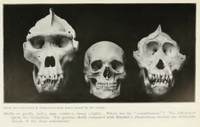
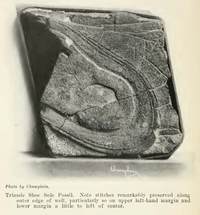
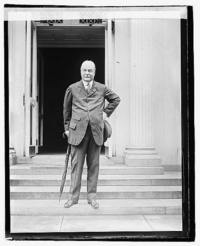

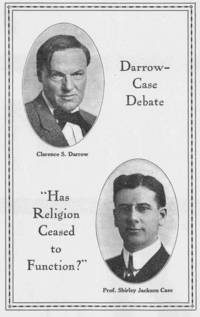
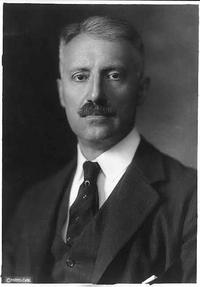
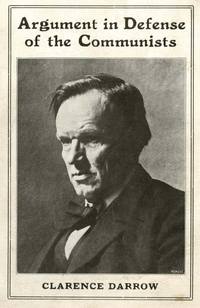
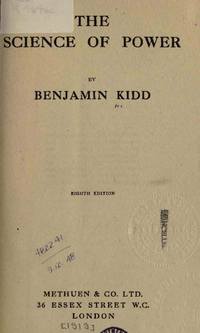
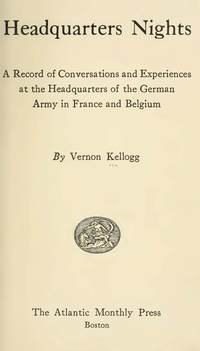
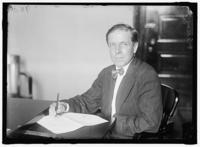
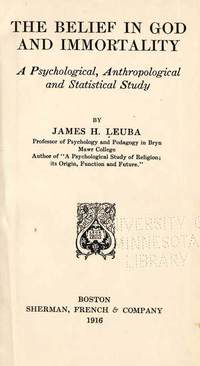
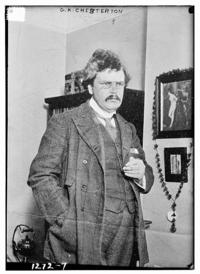
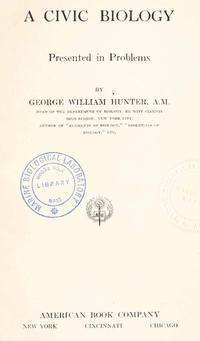
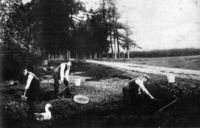
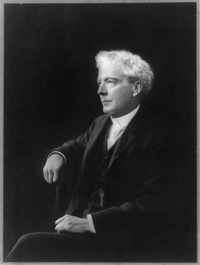
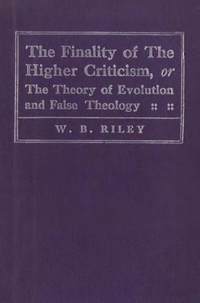
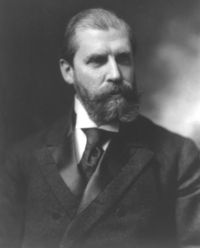
The American Civil Liberties Union did not want Clarence Darrow involved in the Scopes trial because they were afraid he would turn it into a battle against religion instead of focusing on Scopes freedom of speech and freedom to teach without censorship. But Scopes wanted Darrow. After the trial but before appeal, the ACLU hatched a plan to replace Darrow. This plan required the ACLU to turn over control of the case to a committee of well-known attorneys who would select as counsel Charles Evans Hughes. When Arthur Garfield Hays learned of this plan, he angrily rejected it. Hays believed Darrow and Malone should be credited for their work on the case; he also didn't want the conservative lawyers to take credit for the work of the liberal and radical attorneys who took the case to trial. Darrow refused to be pushed aside and he participated in the appeal. Library of Congress Prints and Photographs Division, LC-USZ62-22472.
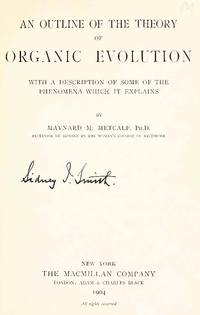
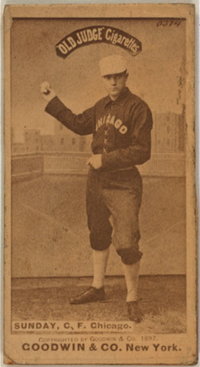
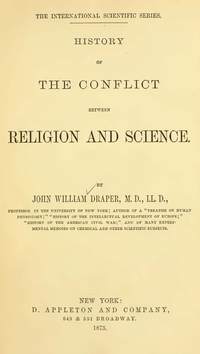
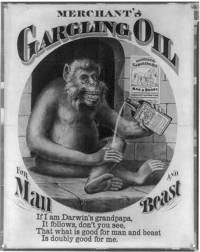
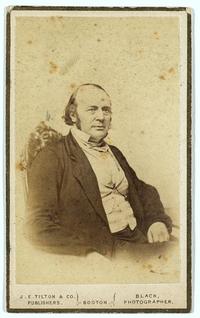
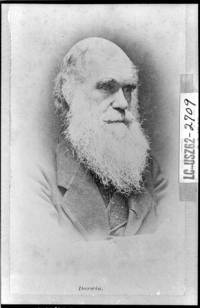
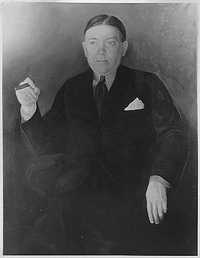
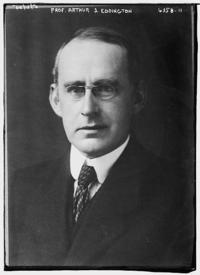
Darrow wrote in his autobiography: "One thing that especially impressed me was the eagerness with which all the religionists have seized upon the cryptic, imaginary, and more or less vapid assertions of Eddington and Jeans. No one doubts their learning and brilliancy in their special field, but that field is not religion. In that they stand like all the rest of us. Their claims carry no authority, but they are to be judged by their investigation of matter outside their realm, and on the consistency and reasonableness of their opinions." Clarence Darrow, The Story of My Life 383 (1996). Library of Congress Prints and Photographs Division, LC-DIG-ggbain-38064.
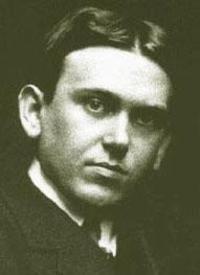
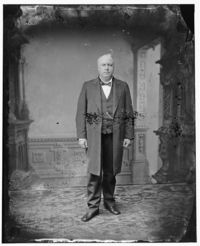
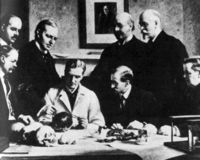
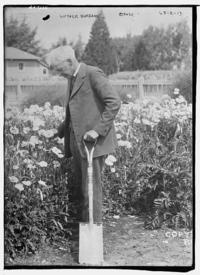
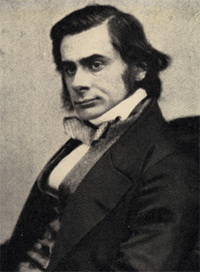
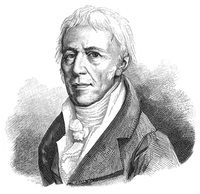
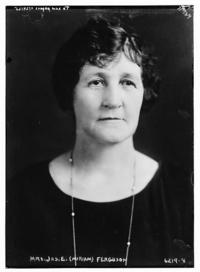
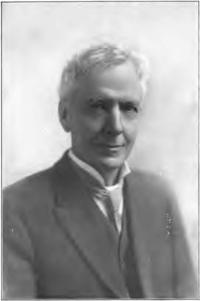
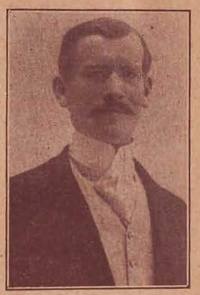
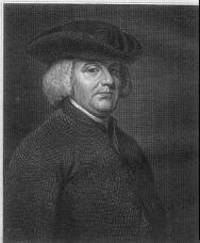
In his autobiography Clarence Darrow referenced Paley: "Seldom do the believers in mysticism fail to talk about the evidence of purpose and design shown in the universe itself. This idea runs back at least one hundred and five years, to Paley's Natural Theology. There was a time when this book was a part of the regular course in all schools of higher learning, which then included theology; but the book is now more likely to be found in museums." Wikipedia: William Paley.
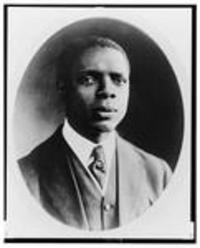
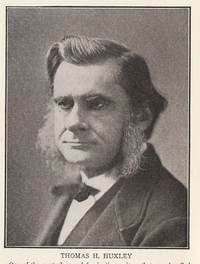
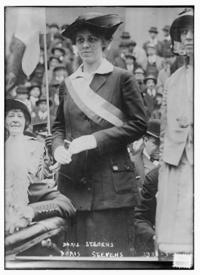
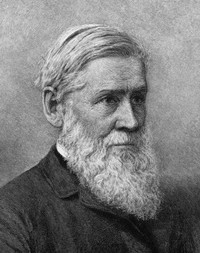
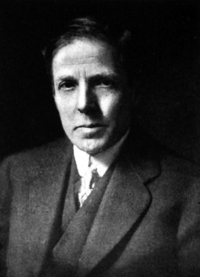
Kellogg recounted his meetings with the German military leaders in his book Headquarters Nights: A Record of Conversations and Experiences at the Headquarters of the German Army in France and Belgium. William Jennings Bryan, who was horrified by the mass slaughter of World War I, was deeply influenced by Kellogg's book which led him to believe that German militarism was based on the "survival of the fittest" doctrine from the theory of evolution. Kellogg was also one of the founding organizers of the National Research Council.
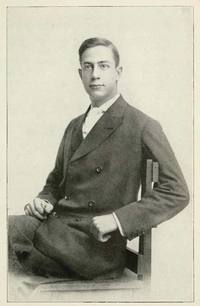
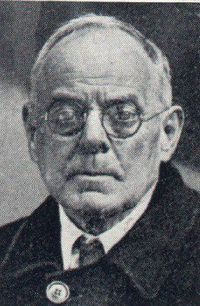
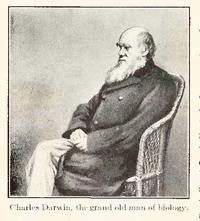
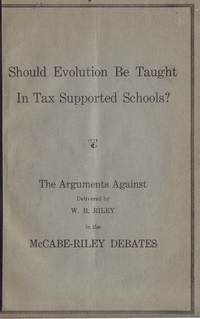
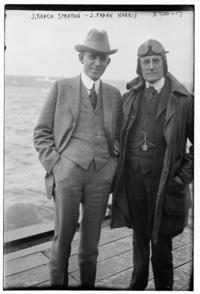
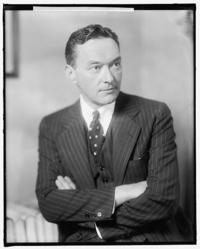
"You will note that the Tennessee statute does not prohibit the teaching of the evolution theory in Tennessee. It merely prohibits the teaching of that theory in schools which the people of Tennessee are compelled by law to contribute money. Jefferson had said that it was sinful and tyrannical to compel a man to furnish contributions of money for the propagation of opinions which he disbelieves. The Tennessee legislators representing the people of their state were merely applying this principle. They disbelieved in the evolution theory, and they set out to free their constituents of the sinful and tyrannical compulsion to pay for the propagation of an opinion which they disbelieved." Library of Congress Prints and Photographs Division, LC-DIG-hec-21695.
